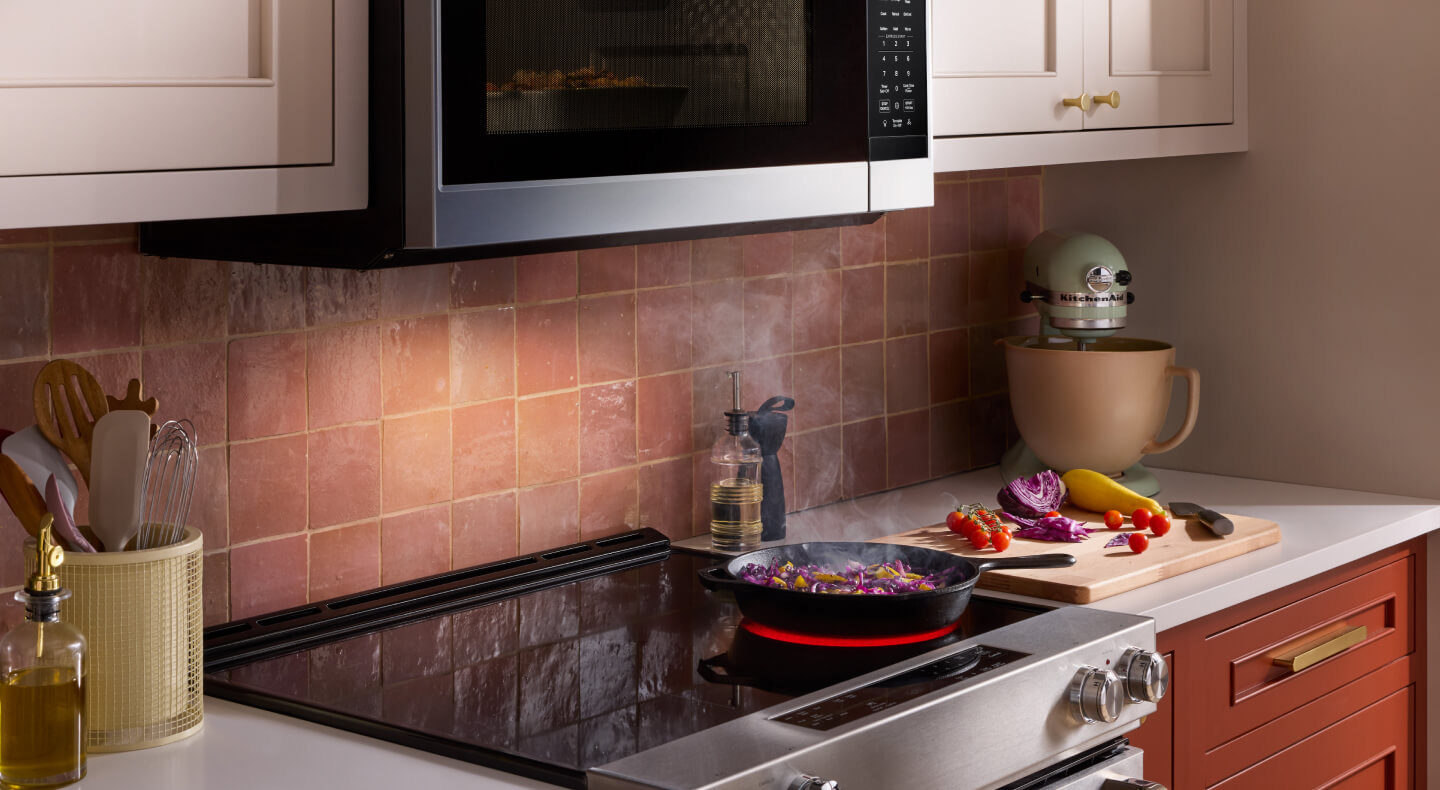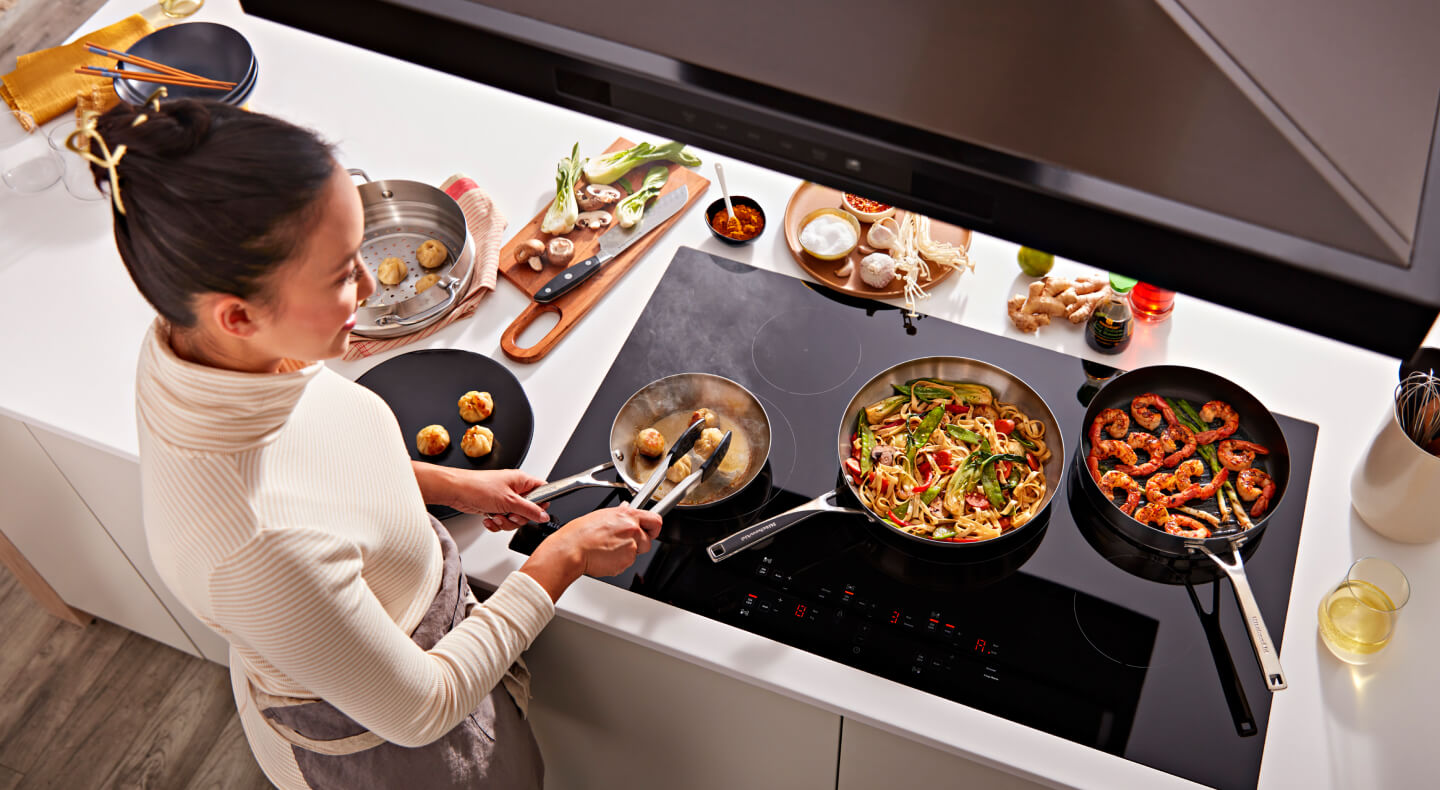
Can you use stainless steel on induction cooktops?
Stainless steel cookware, with its reputation for even heat distribution, durability and versatility, is often a popular choice for professional chefs and passionate home cooks alike. With the rising popularity of induction cooktops, like these from KitchenAid brand, you may wonder if your stainless steel pots and pans can still be used on these types of surfaces.
Induction cooking houses a copper coil beneath a ceramic-glass surface but generates an electromagnetic charge that reacts with magnetic cookware to create heat directly within pots and pans, instead of radiating from the coil itself. The pan you use needs a ferromagnetic base to conduct the heat, which means it must have iron content or a layer with magnetic properties. Read on to learn more about stainless steel pans and how to tell if yours are compatible with induction.


Does all stainless steel work on induction?
For the most part, stainless steel will work on an induction cooktop, but there is a caveat: The pan must have a magnetic base to be compatible. You can test any pan with a magnet to see if it works on an induction cooktop.
Why aren’t all stainless steel pans induction compatible? Stainless steel pans will work if it is made entirely of (or contains) a layer of magnetic materials that make it attracted to magnets. However, there are multiple types of stainless steel, each with its own combination of metals and layers to improve durability and optimize heat distribution. These different combinations can affect the quantity of magnetic content and the pan’s conductivity.
As you explore stainless steel pans, you’ll find there are different grades of stainless steel, which may affect performance or induction compatibility. It’s important to understand which grade of stainless steel your pan is made from, since stainless steel that has a high nickel content can block the magnetic field. In that case, the pan may not be detected by the element.
Types of stainless steel:
200 Series: This type of stainless steel is usually found in cheaper, lower-quality cookware, and is usually not magnetic or induction-compatible.
300 Series: This type of stainless steel is the most common, and includes the 304 and 316 series, also called the 18/8 and 18/10. They tend to be more durable and corrosion resistant, but are still usually nonmagnetic.
- 400 Series: This type of stainless steel, particularly the 432, is highly magnetic and typically a good choice for induction.
Additionally, you may see stainless steel pans labeled 3- or 5-ply; these pans are constructed in layers. The first layer is the core material, and the rest are the stainless layers wrapped around it. 5-ply may also be more durable than a 3-ply pan.
How to check if your stainless steel cookware is induction compatible
You can check if your pan is induction compatible by using a magnet. If the magnet sticks strongly to the bottom of the pan, you can use it on an induction cooktop. If the attraction is weak, the pan is probably not a great one to use on your induction stovetop.
Tip:
You can also check for an induction-compatible symbol on the bottom of the pan. These can look like zig-zags or coils, or the pan may have the word “induction” on it.
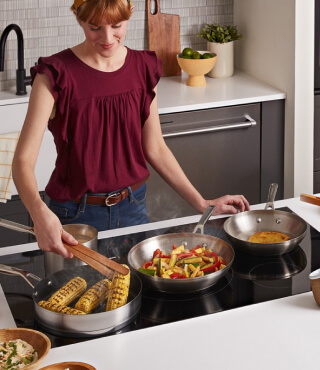
Interested in induction?
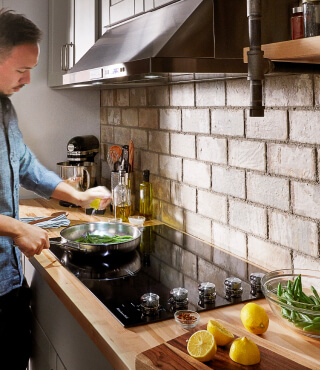
Choose the best cooktop for you
Which cookware is best for induction cooking?
When choosing induction-compatible cookware, opt for materials like magnetic stainless steel, cast iron or enameled cast iron. Avoid aluminum, copper and glass.
Types of cookware:
Stainless steel: These durable and versatile pans need to be tested to ensure they are magnetic and will work on an induction cooktop.
Cast iron: Durable and long-lasting, cast iron conducts heat slowly but retains it for a long time. These pans are induction compatible, but look to choose a pan with a smooth bottom, as rough cast iron can scratch your cooking surface.
Carbon steel: Made of carbon and iron, these pans tend to be highly electromagnetic and are usually quite compatible with induction cooktops.
Porcelain enamel on metal: These will work on induction as long as the base metal is magnetic. You can test your pan with a magnet.
- Aluminum, all-copper and glass: These materials are not typically compatible with induction unless they have a layer of magnetic material on the bottom.
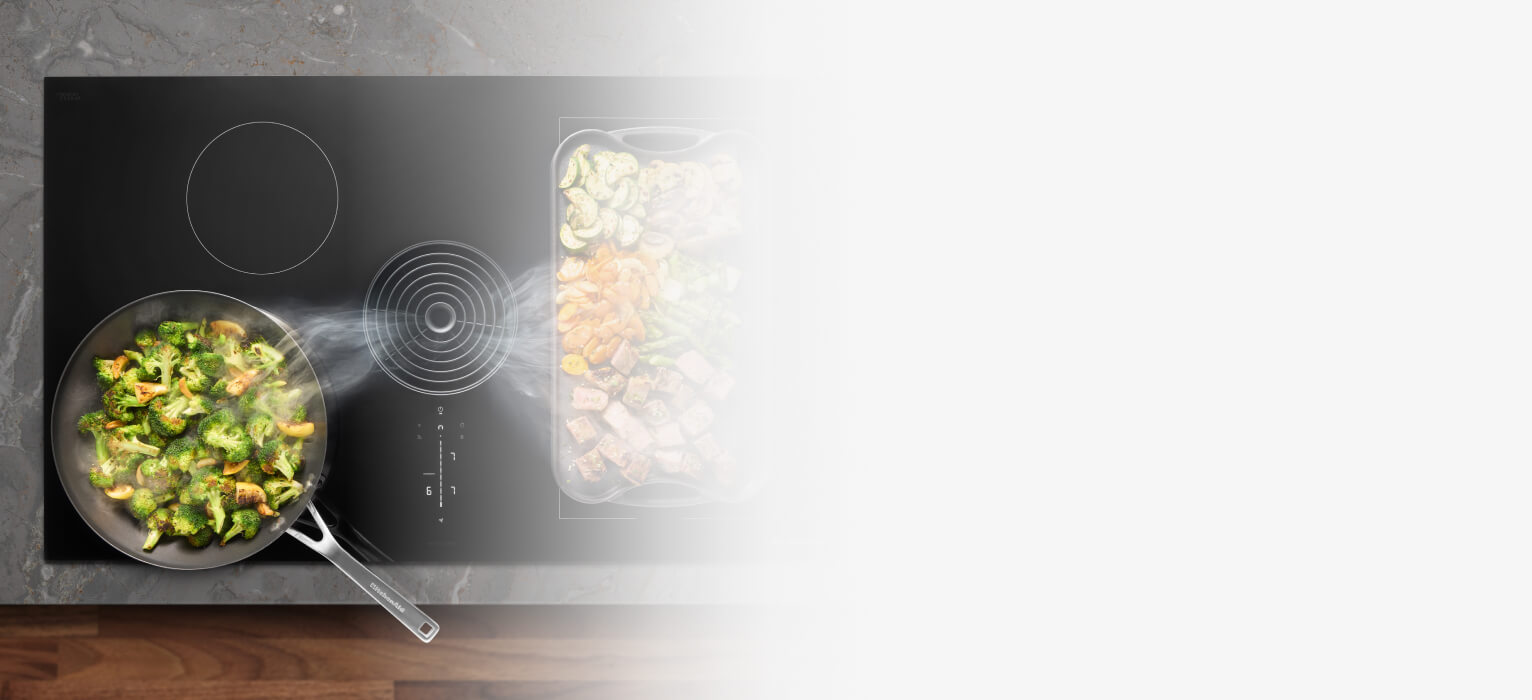
KitchenAid® Induction Downdraft Cooktops
Powerful extraction to help clear the air
Get downdraft ventilation that can adjust automatically to remove odors, steam and smoke 5x faster than steam can rise

KitchenAid® Hardware Accessory Kits
Curate the colors and textures that move you
From bold Black Ore to the inviting warmth of Bronze, mix and match handles and knobs to refresh your appliances and bring new energy to your kitchen
